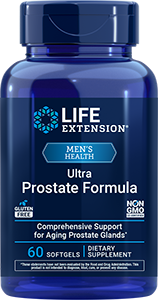
Newsletter
Newsletter
Large study finds lower risk of COPD risk among regular consumers of fish oil

A study that followed 484,414 men and women for a 9-year median period found a 12% lower risk of chronic obstructive pulmonary disease (COPD) among regular users of fish oil compared to nonusers.1
“To our knowledge, this is the first study to examine the genetic risk of COPD in conjunction with habitual fish oil [intake],” announced authors Zhi-Hao Li and colleagues, whose report was published on October 8, 2022, in Clinical Nutrition.
Chronic obstructive pulmonary disease, which includes bronchitis and emphysema, leads to irreversible decline in lung function. The authors of the report suggested that the most plausible explanation for their findings is that omega-3 fatty acids lower inflammatory processes involved in the development of COPD, through several mechanisms. They remarked that “habitual fish oil [intake] may play an important role in the primary prevention of COPD in the entire population, regardless of their genetic profile.”
Among participants in the study, a higher genetic risk score for COPD predicted a greater risk of developing the disease; however, the association between the use of fish oil and a lower risk of COPD was independent of genetic risk.
Products
Apply What You've Learned: COPD
- Chronic obstructive pulmonary disease (COPD) includes chronic bronchitis and emphysema—diseases that are treatable but not curable.
- Smoking is the number one risk factor for COPD. Quitting smoking is the most important thing people can do to prevent COPD or slow its progression.
- Exposure to air pollution; secondhand smoke; and occupational chemicals, dust, and fumes are other risk factors to be avoided.2-3
- Nutrients that include vitamin A and its precursors alpha- and beta-carotene, vitamins C and D, mixed tocopherols with tocotrienols and N-acetylcysteine may help support the health of individuals with COPD.4-12
References
- Li ZH et al. Clin Nutr. 2022 Oct 8;41(12):2651-2658.
- Doiron D et al. Eur Respir J. 2019 Jul 25;54(1):1802140.
- American Lung Association. Updated 2021 Mar 5. https://www.lung.org/lung-health-diseases/lung-disease-lookup/copd/what-causes-copd
- Jun L et al. J Am Coll Nutr. 2021 Nov-Dec;40(8):708-712.
- Tsiligianni IG et al. Respir Res. 2010 Dec 6;11(1):171.
- Lei T et al. Int J Chron Obstruct Pulmon Dis. 2022 Sep 10;17:2201-2216.
- Li X et al. Ann Palliat Med. 2020 Mar;9(2):286-297.
- Hanson C et al. Clin Nutr. 2016 Feb;35(1):169-174.9.
- Agler AH et al. Thorax. 2011 Apr;66(4):320-5.
- Xi X et al. Antioxidants (Basel). 2021 May 31;10(6):883.
- Peh HY et al. Free Radic Biol Med.2017 Sep;110:332-344.
- Stav D et al. Chest. 2009 Aug;136(2):381-386.
Featured Life Extension Magazine® Article
How Magnesium Helps Reverse Brain Aging
By David Cameron
Magnesium supports healthy brain function in numerous ways, yet most adults fail to obtain enough of this essential mineral in their diets.
Studies involving cognitively impaired individuals have found improvement among participants who received a type of magnesium known as magnesium L-threonate, a form of the mineral developed by MIT researchers to boost magnesium levels in the brain. In a trial that included older men and women with early cognitive impairment, those taking magnesium L-threonate for 12 weeks decreased brain age (determined by the speed of completion of a specific test) by 9 years while those who received a placebo had little change. In another trial, magnesium L-threonate improved cognition in people with mild to moderate dementia.
Read Full Article
What's Hot
Health Concern
Vitamin C intake associated with improved lung function in COPD
On September 10, 2022, the International Journal of Chronic Obstructive Pulmonary Disease published a systematic review and meta-analysis of clinical trials that found improvement in lung function among chronic obstructive pulmonary disease (COPD) patients who received vitamin C.

Chronic Obstructive Pulmonary Disease (COPD)
Learn what causes COPD, how therapy can relieve symptoms and what lifestyle changes can help reduce exacerbations.
Related Life Extension Magazine® Articles

Milk Thistle May Protect Against Second-Hand Cigarette Smoke
According to the Centers for Disease Control, there is no acceptable safe level of exposure to second-hand smoke. Chronic obstructive pulmonary disease (COPD) is often caused by second-hand smoke. Milk thistle extracts may help protect against COPD.

Protect Your Respiratory System
NAC (N-acetyl-L-cysteine) helps prevent viruses and bacteria from adhering to the lining of the lungs. Data show that NAC reduces excess airway mucus, lowers inflammation, supports pulmonary function, and inhibits infectious colonization.
Save $15 NOW…
Life Extension Magazine® Issue Now Online
A remarkable number of healthy-longevity findings have been published over the past 18 months.




